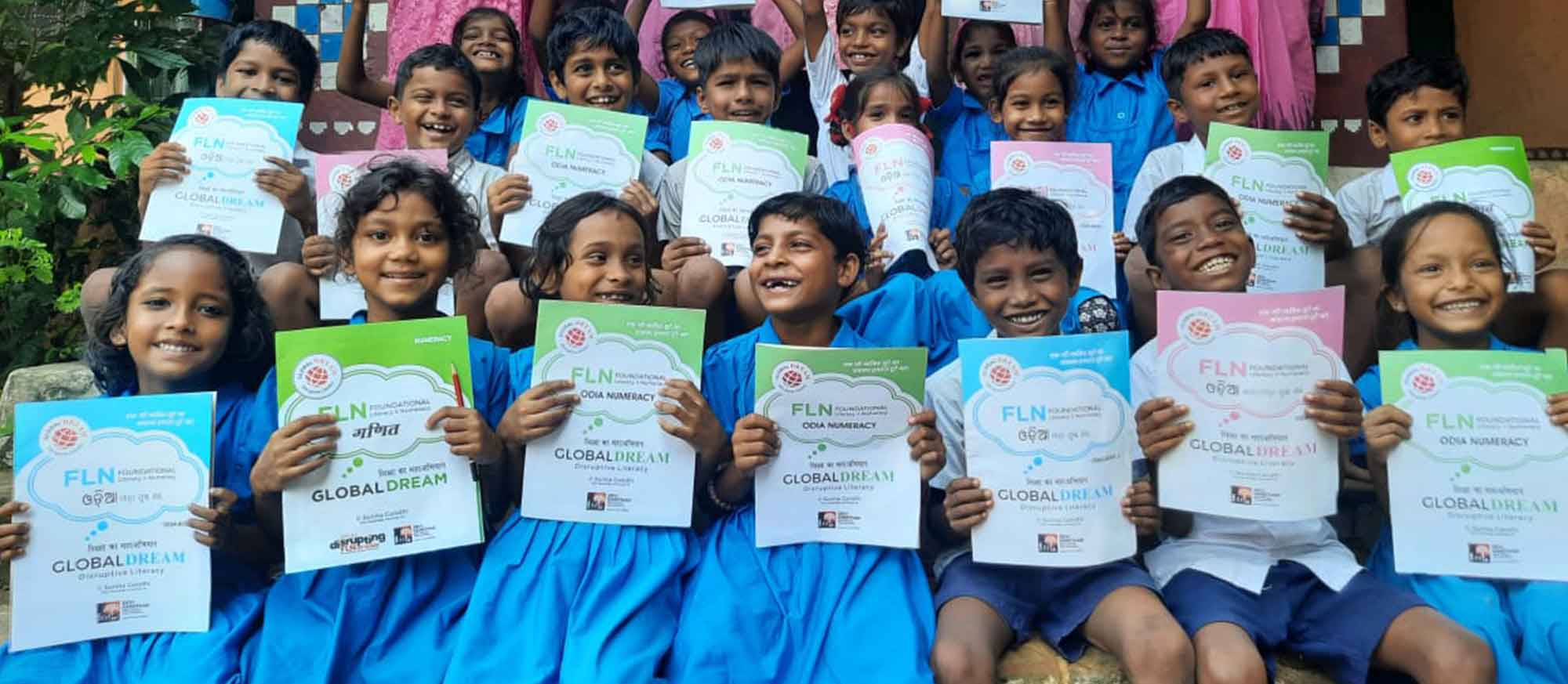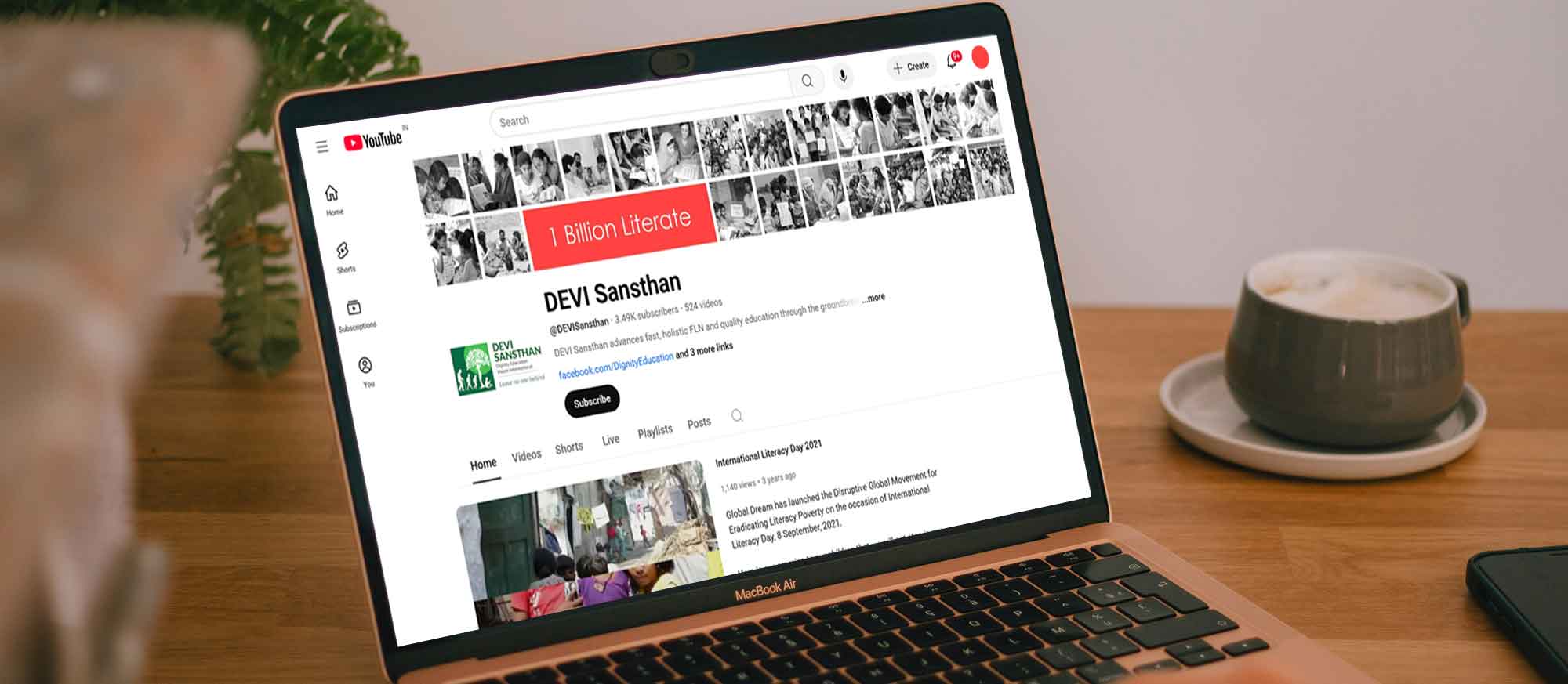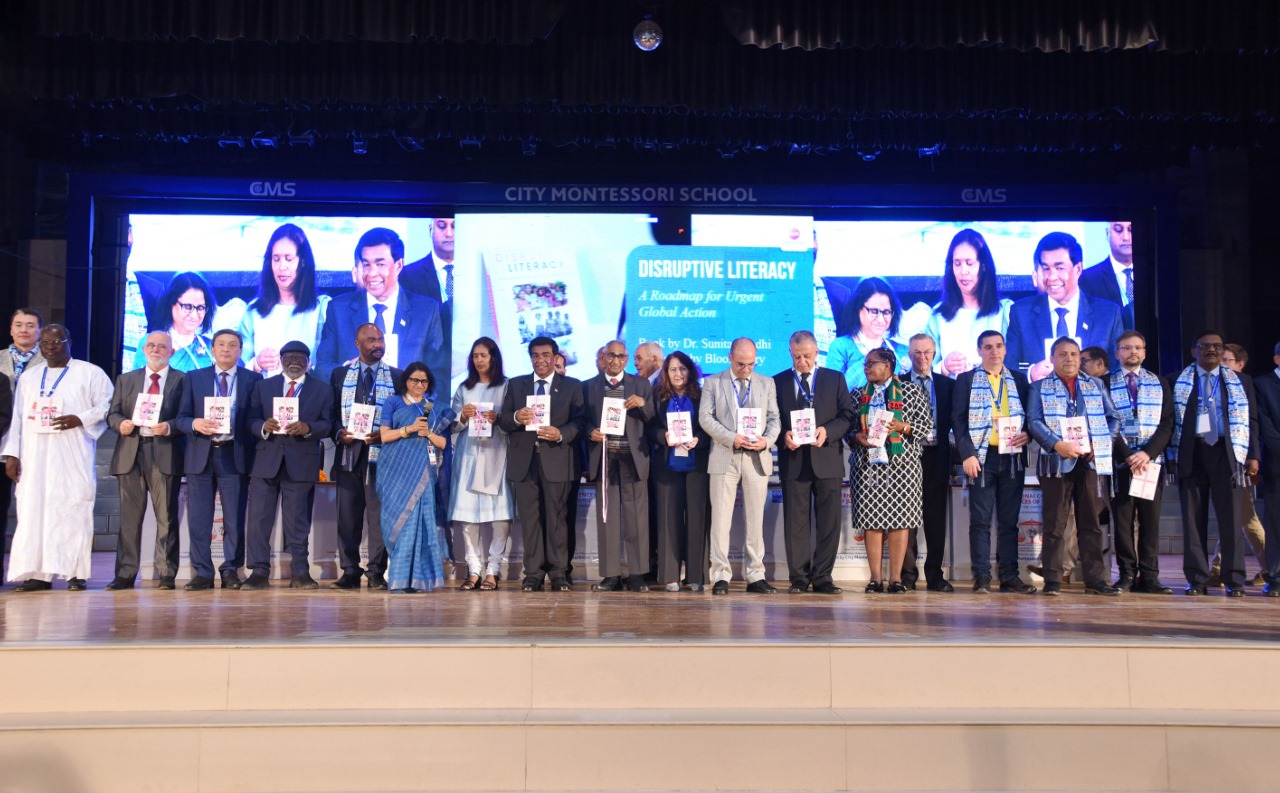- +91 740 840 6000
- info@dignityeducation.org
- Registered in India & USA


Global Dream has launched the Disruptive Global Movement for Eradicating Literacy Poverty on the occasion of International Literacy Day, 8 September, 2021.
Here is our promise to our children that we will not stop in our mission until every last child has the ability to read and write, and continue on the path of education to fulfil their deams.
लखनऊ 16वां एड लीडरशिप इंटरनेशनल राउंडटेबल, शिक्षा में PATH आंदोलन को मिली राष्ट्रीय पहचान
भारत का सबसे बड़ा शिक्षा सम्मेलन शुरू—ALfA PATH मॉडल बनेगा सीखने की नई क्रांति
16वींएड लीडरशिप इंटरनेशनल राउंड टेबलदेश का सबसे बड़ा और प्रभावशाली शिक्षा नेतृत्व सम्मेलन हुआ आरंभ
लखनऊ में बन रहा है। 16वां Ed Leadership Conference 2025, ALFA PATH मॉडल बनेगा केंद्रबिंदु
Footage from CMS - world's largest school - showing ALfA Numeracy process
Footage from CMS - world's largest school - showing ALfA Literacy process
Senior government official's speech at a Lucknow training of 1300 teachers, with cuts to classroom footage
Footage, testimony & results from Literacy Chicago using ALfA for adult reading program
Children with disability learning through ALfA
Officials & teachers' testimonies in Uttar Pradesh with classroom footage
Shows how to do addition with carrying (using animated powerpoint). We have a separate video for each of the operations
Showcasing ALfA implementations around the world
Education leaders & policymakers share their thoughts on ALfA
Honor your ancestors through kindness, teach a child, empower education, and worship through giving.

While ALfA is a new program, having been launched in government school contexts in 2022, it is based on over a decade of active educational research in Lucknow’s slums and private schools. ALfA is now well established, having been implemented in thousands of schools in India, and with pilots across 12 countries. ALfA is discussed at length in two books published by Bloomsbury and two chapters of a book edited by Harvard Graduate School of Education Professor Fernando Reimers.
But perhaps the most important reason to try something new is this: the old systems are not working. 70% of 10-year-olds in low-and-middle-income countries around the world cannot read a simple text with understanding. Something must change!
We understand that many teachers are already overburdened, and have a big workload. However, we firmly believe that ‘completing the curriculum’ is a secondary goal, the primary focus should be on students’ learning outcomes. Experiences in Uttar Pradesh, India’s most populous state, indicate that when students complete the 45-day ALfA program their improved reading skills enable them to work through their textbooks much more swiftly and effectively.
Though ALfA is a new pedagogy, it contains many elements which are well established – from peer learning to hands-on activities. ALfA is like a recipe that brings together these ingredients in a new and unique way, to make a flavourful dish:
None of these aspects is not unique, but they are combined in a unique way in ALfA.
Structured pedagogy is defined as a ‘coherent package of textbooks, lesson plans, and teacher training and coaching that work together to improve in-class teaching’ (Copenhagen Consensus, 2023). Structured pedagogy is an increasingly popular approach, recognized by the World Bank Global Education Evidence Advisory Panel as a ‘Smart Buy’.
ALfA is a coherent package of learning materials, assessments, apps, teacher training & guides – making it, in some regards, a form of structured pedagogy. However, it is different from some structured pedagogies which provide a highly detailed and rigid mapping of what teachers need to do every period of every week of every year. Instead, ALfA’s process-led structure gives significant flexibility and freedom to both teachers and students to work at their own pace and style.
Many classrooms have huge diversity of learning levels: some children may be at or beyond their age-appropriate level, while others lag far behind. This can be a big challenge for teachers, who struggle to decide whether to teach to the top, middle, or bottom of the class.
Teaching at the Right Level (TaRL) is a well-respected FLN program that tackles this problem of multi-level classes by testing students’ learning levels, grouping them, and targeting instruction accordingly.
ALfA presents a different solution to the same problem: working together in random pairs, children help each other learn. This not only proves effective academically, it also helps develop social skills, as children learn to work with a diversity of classmates. Avoiding labels of ‘strong’ or ‘weak’ helps all children develop a growth mindset, striving to excel regardless of their current learning level.
The Annual Status of Education Report consistently finds high rates (15-30%) of student absenteeism in India, and this is a common problem across many LMICs. However, our experience so far of ALfA in Uttar Pradesh has indicated that, when children are having fun in school and learning is visibly rapid, their attendance typically also increases.
ALfA can be particularly helpful in challenging contexts such as multi-level classes or areas with a large student: teacher ratio.
ALfA refuses to categorise children as 'weak' or 'strong', but it's true that in any classroom there will be a mix of learning levels. Two students who are struggling with reading will still decipher more together than they would have individually – two heads are better than one. If two children working together both don't understand what they're doing, they can ask another pair for help. With new random pairings every day, children will soon get a chance to work with others. Very soon, though, even the so-called ‘weakest’ students will learn the process and be able to start asking questions. We’ve seen students as young as four-year-olds beautifully ask questions and help each other.
ALfA is currently available in 30 Indian and international languages. We encourage focusing on mother tongue literacy in early years. If ALfA is not available in your local language, we would love to collaborate with you to help develop – reach out to us. When using ALfA in a second language, you may need to help build their vocabulary so they can recognise the pictures, before they are able to learn decoding and blending. For instance, invite the students to make TLMs like picture and letter cards, and play games with them.
Some students already know how to perform various arithmetic operations and get the correct answer. However, they still gain by doing it through hands-on activities, as they gain deeper insight and understanding. Concepts like ‘carrying’ in addition and ‘borrowing’ in subtraction may have earlier been done mechanistically, but now become more meaningful.
Beyond academics, paired learning in ALfA helps students develop their socio-emotional skills, including collaboration, communication, citizenship and character.
Some children have special learning needs (hyper, shy, autistic, dyslexic, etc.) and struggle to focus in a traditional classroom. ALfA helps such children to also become actively involved in the learning process. They are included in the paired learning process, and an active part of the classroom – rather than being segregated into a ‘special’ class. Their presence can help other students develop their collaboration and citizenship skills and attitudes.
ALfA classrooms are often noisy, as children interact with each other in pairs. This clashes with our traditional conception of a 'good class' as one in which students do their individual work silently. As teachers we have to get used to a new normal of accepting 'productive noise'.
Parents, who have themselves been brought up in a traditional education system, will sometimes struggle to understand an ALfA classroom. Common objections include 'there's not enough written work' and 'how will they learn if the teacher doesn't explain'? Initially, you may want to do an ‘open day’ or ‘town hall’ to showcase some ALfA activities and get the teachers more interested. Before long, the learning outcomes of students will speak for themselves.
Schools are chosen through randomized sampling to ensure unbiased results.
Baseline assessments establish the starting point for student literacy and numeracy skills, and provide data for comparative analysis with midline and endline assessments. The assessment process involves:
In ALfA, teachers are supported through a combination of training, peer mentorship, grow circles and WhatsApp groups:
ALfA provides a useful structure to teachers and students, while allowing a lot of freedom and flexibility.
Middle-level leaders and trained supervisors should visit classes in ALfA schools regularly, using a standardized checklist to evaluate teacher methods and student engagement, while logging observations in the ALfAway app for real-time reporting.
ALfA minimizes costs through use of thin booklets, locally sourced materials (like ice cream sticks and matchsticks), and online teacher trainings. The costs are shared between DEVI Sansthan, implementing partners, and external funders differently depending on the phase.
Yes. We are fully 80G & 12A compliant, donations are tax deductible for Indian citizens.
DEVI Sansthan has FCRA approval and can receive funds from overseas individuals and organisations. You can wire in your funds to the account:
Write to us at info@dignityeducation.org if you’re facing any challenges.
DEVI has been supported for various projects by SBI Foundation, SBI Life Insurance, M3M Foundation, and HCL Foundation. Apart from this we are reliant on donations from individuals. Our founder, Dr Sunita Gandhi, has also donated significant sums personally.
No. Dignity Education Vision International is a not-for-profit organisation, with registration number 250/1992-1993 under the Societies Act (1860). Our flagship Accelerating Learning for All program is available in 30 languages for anyone to use for free. For private schools and some partner organisations, we sell hard-copies of our materials in order to cover printing and transport costs.